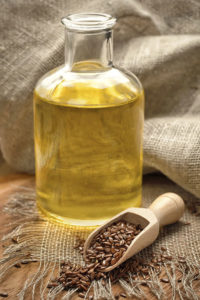
Can Nutrition Help a Horse With Uveitis?
One equine nutritionist offers dietary advice that might help reduce inflammation and guard against gastric ulcers during NSAID treatment for uveitis.

One equine nutritionist offers dietary advice that might help reduce inflammation and guard against gastric ulcers during NSAID treatment for uveitis.

Intraocular gentamicin injections might be less costly and less invasive alternatives to vitrectomy in horses with early stage ERU, also known as “moon blindness.”

Find out what behaviors and signs to watch for that suggest visual impairment, and learn how to help horses deal with deteriorating eyesight and blindness.

To boot, researchers found that it’s not always easy for owners to spot ocular issues: Owners reported that fewer than 4% of the study horses had some sort of ocular disease, but researchers determined that nearly 90% of them did.

Equine recurrent uveitis (ERU) is an incurable and painful eye condition that can result in vision loss and reduce affected horses’ function and value. Here’s a look at the latest research and findings on this frustrating condition.

Dr. Eric Swinebroad gives an overview of Lyme disease’s potential clinical signs.

Equine recurrent uveitis, or ERU, remains a timely, expensive, and unrewarding disease to treat due to recurrence, loss of vision, and loss of use.

Eye specialist Dr. David Wilkie covers ERU (aka moon blindness) clinical signs, causes, exams, treatment, and more.

Discuss topics from travel plans to your horse’s age with your veterinarian to help ensure yearlong equine wellness.

Skin diseases and lameness were the most commonly reported ailments, affecting 31.1% and 23.4% of horses, respectively.

Eye problems are common in horses and can negatively impact training and quality of life. Here’s what to know.

Learn whether your horse is at risk and if you should be vaccinating for this “new” disease.
Equine recurrent uveitis, or ERU, is the most common cause of blindness in horses worldwide. Here’s what to remember.

This vision-threatening condition often doesn’t become clinically apparent until late in the progression of the disease.

Leptospirosis is a serious bacterial disease that causes both recurrent uveitis (“moon blindness”)—especially in Appaloosas, draft horses, and Warmbloods—and abortion in horses. But now there’s a vaccine to prevent it. Is your horse is at risk?

Researchers believe pathogenic forms of Leptospira bacteria are associated with more than 60% of ERU cases.
Stay on top of the most recent Horse Health news with
© 2022 Copyright Statement dolor sit amet, consetetur sadipscing User Terms, sed diam nonumy eirmod tempor invidunt ut labore et dolore magna aliquyam erat, sed diam voluptua. At vero eos et accusam et justo duo dolores et ea rebum. Stet clita kasd gubergren, no sea takimata sanctus est Lorem ipsum dolor sit amet.
"*" indicates required fields